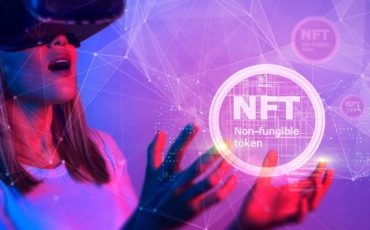
Hipposol, A Solana-based Memecoin Announces $Hippos Token Presale Round
April 24, 2024 by chainwire

Your Ultimate Guide To Block Finality And Its Top 10 Importance In Solana Blockchain
April 24, 2024 by Diana Ambolis

Top 10 Amazing Ways Clusters Contribute To The Architecture Of Blockchain
April 24, 2024 by Diana Ambolis
-
Hipposol, A Solana-based Memecoin Announces $Hippos Token Presale Round
April 24, 2024 by chainwire -
Your Ultimate Guide To Block Finality And Its Top 10 Importance In Solana Blockchain
April 24, 2024 by Diana Ambolis -
Top 10 Amazing Ways Clusters Contribute To The Architecture Of Blockchain
April 24, 2024 by Diana Ambolis
- Top 5 Mistakes To Avoid In Blockchain Ecosystem
- Top 10 Ways Project Management Is Easier With Metaverse
- The Future of Web3 Job Markets: Top 15 Ways To Be Ready For It
- The Role Of Crypto Payment Gateways In Decentralized Finance (DeFi)
- Web3 And The Future of E-commerce: Opportunities And Challenges For Businesses
- Australia Enters the 1,000 Club: A Leader In Bitcoin ATM Adoption
- AneeMate: Redefining Creature-Catching Games with AI and Web3
- North Korean Lazarus Group Targets Crypto Firms via LinkedIn Malware Attacks
- Millions In Crypto Assets Languish In Forgotten Bridge Contracts
- Bitcoin Price Poised for Breakout as Bollinger Bands Tighten
Top 10 Amazing Ways Bitcoin’s Security Will Enhance The NFT Market
Non-Fungible Tokens (NFTs) have taken the world by storm. These unique digital assets, representing ownership of everything fro...
Top 10 Intriguing Ways Bitcoin Crashes Spark NFT Booms (and Vice Versa)
The cryptocurrency and blockchain space is a whirlwind of innovation and volatility. Two of the hottest segments within this do...
Understanding The Important Top 10 Difference Between Blockchain ETFs And Bitcoin ETFs
As the world of cryptocurrency and blockchain technology continues to evolve, investors are presented with an array of investme...
Your Ultimate Guide To The Cross Chain AI Hub With Ethereum
In the rapidly evolving landscape of technology, the convergence of artificial intelligence (AI) and blockchain has given rise ...
Crypto Gaming
Blockchain-as-a-Service (BaaS): Top 10 Amazing Ways It has The Advantages For Businesses
Blockchain technology has revolutionized various sectors, offering a secure and transparent way to store and manage data. However, for many businesses, building and maintaining their own blockchain infrastructure can be a complex and resource-intensive task. This is where Blockchain-as-a-Service (BaaS) eme...
Inter-Blockchain Communication – IBC Protocol: Top 10 Amazing Benefits of Benefits Of A Connected Blockchain Landscape
The world of blockchain technology is rapidly evolving, but one major hurdle remains: siloed ecosystems. Different blockchains often operate in isolation, hindering the seamless flow of data and assets between them. This is where the Inter-Blockchain Communication- IBC protocol steps in, acting as a bridge...
What’s The Future of Customer Engagement Via Web3? Is It good?
In recent years, the advent of Web3 technologies, driven by the blockchain and decentralized technologies, has significantly reshaped the digital landscape. This transformation extends beyond just cryptocurrencies and financial transactions; it is now influencing the way businesses interact with their cust...
STASIS and Circularity Finance Spearhead an Eco-Sustainability Revolution With the Learn To Earn (L2E) Model
In the realm of digital currencies and blockchain technology, the narrative of innovation intertwines with the quest for sustainability. As global adoption of digital assets and blockchain solutions surges, the imperative for education in this domain becomes increasingly vital. In a move that merges ...
BRICS Bet On Blockchain: An Amazing “Politics-Free” Payment System, Is It Possible In 2024
The BRICS nations (Brazil, Russia, India, China, and South Africa) have set their sights on a new frontier: a blockchain-based payment system designed to be independent and free from political influence. This ambitious project, announced earlier this year, has the potential to reshape the global financial ...
Latest in Press

BEFE Coin Million-Dollar Magic: The $100 Investment That Could Soar
April 24, 2024 by Diana Ambolis

Investor Optimism: Bitgert Coin Price Could Surge in Upcoming Weeks
April 24, 2024 by Diana Ambolis

Bitgert Coin Price Rally: Exchange Growth Drives Bullish Sentiment
April 23, 2024 by Diana Ambolis
-
BEFE Coin Million-Dollar Magic: The $100 Investment That Could Soar
April 24, 2024 by Diana Ambolis -
Investor Optimism: Bitgert Coin Price Could Surge in Upcoming Weeks
April 24, 2024 by Diana Ambolis -
Bitgert Coin Price Rally: Exchange Growth Drives Bullish Sentiment
April 23, 2024 by Diana Ambolis
-
November 6, 2019
Yap Stone Gets Listed on 8 Exchanges, Giveaways Happening
-
November 1, 2019
Yap Chain Foundation Listing Yap Stone on 8 Top Exchanges
-
August 1, 2023
Will Generative AI Have A Stand In Web3?
-
January 25, 2024
Why Should You Choose a New UK Casino?
-
February 3, 2023
Why Has Gold Prices Surged to a Seven-Month High?
-
January 23, 2024
Which Online Casino is Best in UK? 2024 Guide
Metaverse News
An Intriguing 10 Question Round Interview With NTZNS CEO And Founder “Costantino Roselli”
In this article, we’ll be interviewing Costantino Roselli. He’s the CEO and founder of NTZNS (NeTiZeNS), the leading Metaverse ...
Meet The Co-Founder & Development Lead Behind Ordzaar : Naqib Noor
In this series, we interview the co-founder behind Ordzaar company. The bitcoin ordinals is fully in development, and many diff...
The Eminent Role and Use Cases of Blockchain in Logistics
The modern digital era continuously throws buzzwords into the limelight, but not all stand the test of time and practical appli...
Meet The Founder Of Metaverk: Vikas Ahuja The Rising Pioneer In Metaverse
In this article, we’ll sit down to talk with Mr. Vikas Ahuja, CEO of Metaverk. He founded the company and currently acts as its...
The Top 5 Most Influential Women In Web3 Making A Difference
Whether it’s women in Web3 or any other field, many mysterious things could explain how the world came to be. But there i...
Some Important Points About Nfts: MoonPay CEO
When asked about Monday’s future cooperation with Universal Parks & Resorts, MoonPay’s CEO, Ivan Soto-Wright, c...
Changpeng Zhao: Fear And Greed Are Two Emotions That Traders Must Master
Changpeng Zhao, founder, and CEO of the cryptocurrency exchange Binance, recently tweeted that traders must be able to control ...
How An Aeronautical Student Became Web3 Company Entrepreneur
After completing his aviation degree, Ahmet Usta built a Web3 company focusing on gaming and NFT. It is commonly believed that ...
Key Takeaways from Tommaso Di Bartolo, One of the Experts on Web 3.
Tommaso Di Bartolo believes he has sufficiently described Antony’s participation in the metaverse and web3. His observati...
NFT Shots
-
December 16, 2023
Top Blockchain Innovations that Will Boost The Crypto Casino Sphere
-
October 20, 2023
Bavarsis, a Modern Approach to Investing
-
May 18, 2023
How To Mine Cryptocurrency Using A Mobile Device.
-
February 13, 2023
Webacy Raises $4 Million in Seed Round to Strengthen Web3 Safety



























































































